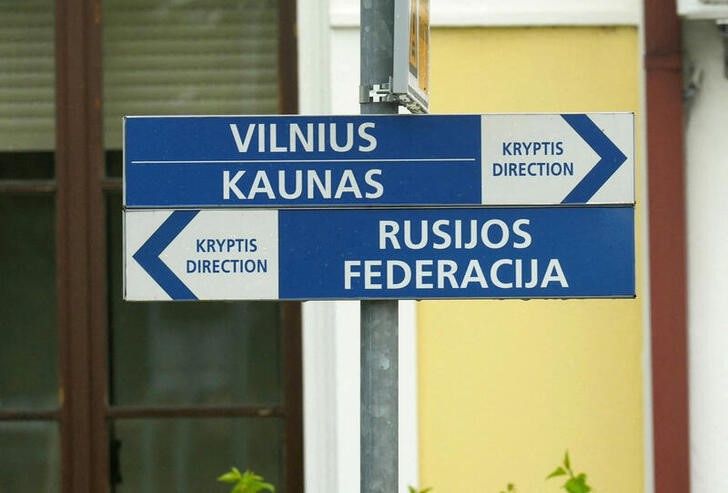
Lithuania on Monday extended restrictions on transit through its territory to Russia’s Baltic exclave of Kaliningrad, as European Union sanctions against Moscow over its invasion of Ukraine took effect.
As Reuters writes, additional goods banned from Monday morning include concrete, wood, alcohol and alcohol-based industrial chemicals, a Lithuanian customs spokesman said.
On Friday, Russia warned Lithuania and the European Union that it could take “tough measures” against them if the transit of goods to and from Kaliningrad does not resume “in the coming days.”
On Monday, the governor of the Kaliningrad region proposed to completely ban the transportation of goods by land transport between Russia and the three Baltic EU countries – Lithuania, Latvia and Estonia, which could redirect Russian cargo from their ports to Kaliningrad’s.
“This will ensure activity for (our) sea carriers and give work to Kaliningrad’s ports, which have been severely affected by EU restrictions,” Governor Anton Alikhanov said on Telegram.
Putin-Lukashenko
Later, Russian President Putin and his Belarusian counterpart Lukashenko discussed a possible response to Lithuania’s actions during a phone conversation, their Telegram accounts reported.
The presidents discussed “certain possible joint steps… in connection with the illegal restrictions imposed by Lithuania on the transit of goods to the Kaliningrad region,” the Kremlin said in a short Telegram message. Since Lithuania does not have a land border with Russia, but it does have one with Belarus, goods from Russia were transported to Kaliningrad through the territory of Belarus.
EU trade restrictions have recently been tightened as governments, markets and companies worry that Russia may decide to extend the shutdown of the largest single pipeline carrying Russian gas to Germany beyond a planned 10-day maintenance period. We will remind that today, Russia stopped supplying gas through the Northern Stream-1 pipeline to Germany.
The dispute over the isolation of Kaliningrad is testing Europe’s resolve to impose sanctions amid fears of an escalating confrontation with Russia after other restrictions pushed Moscow into debt default.
EU officials, backed by Germany, sought a quick compromise to resolve the standoff at the end of June. However, sources told Reuters that Lithuania, once ruled from Moscow within the old Soviet Union, had serious reservations about what could be seen as a concession to the Kremlin.
Kaliningrad borders NATO and EU member states Lithuania and Poland, and relies on railways and roads through Lithuania for most goods. Since June 17, due to the regime of EU sanctions, the coastal area has been cut off from part of the cargo transport from mainland Russia. However, goods that fall under the humanitarian or essential categories, such as food, are exempt from sanctions. Passenger transportation is also not prohibited, Kaliningrad can still be reached by air or sea. Therefore, Russia’s attacks on Lithuania are aimed purely at intimidation and have almost no real basis.

